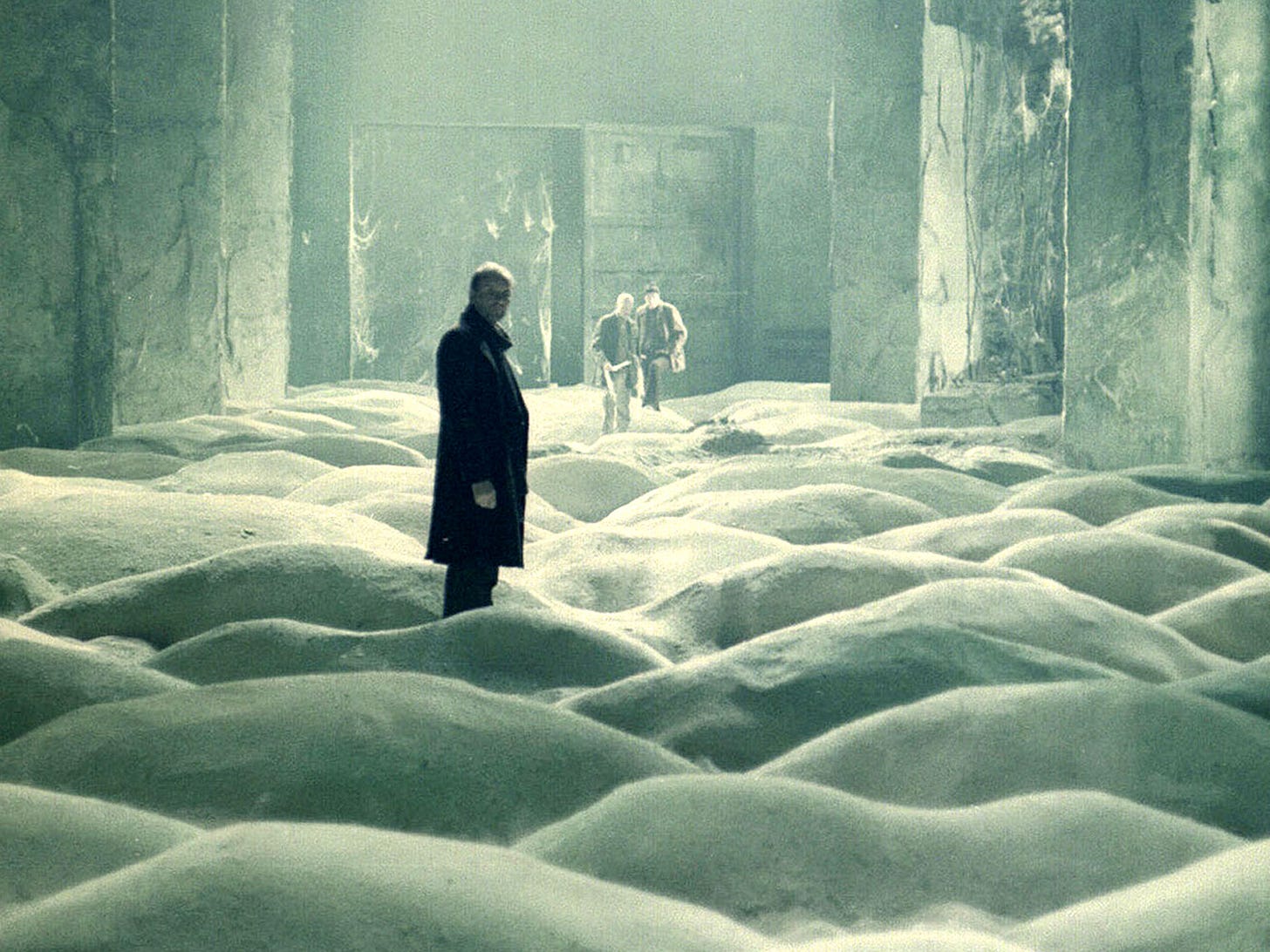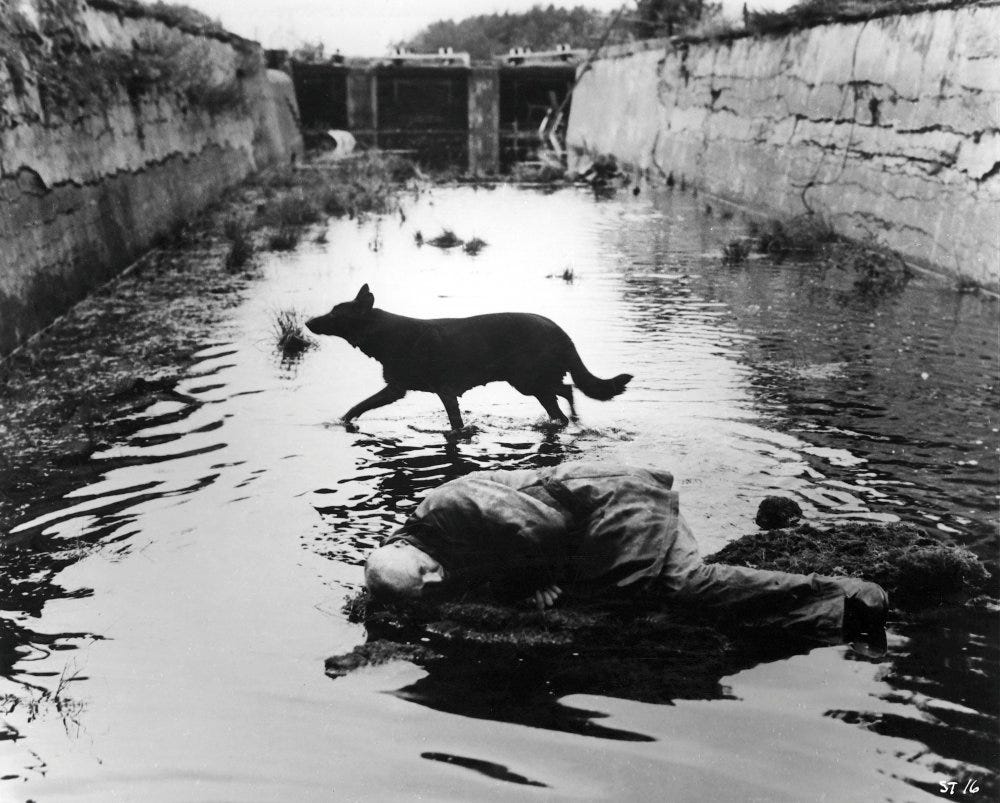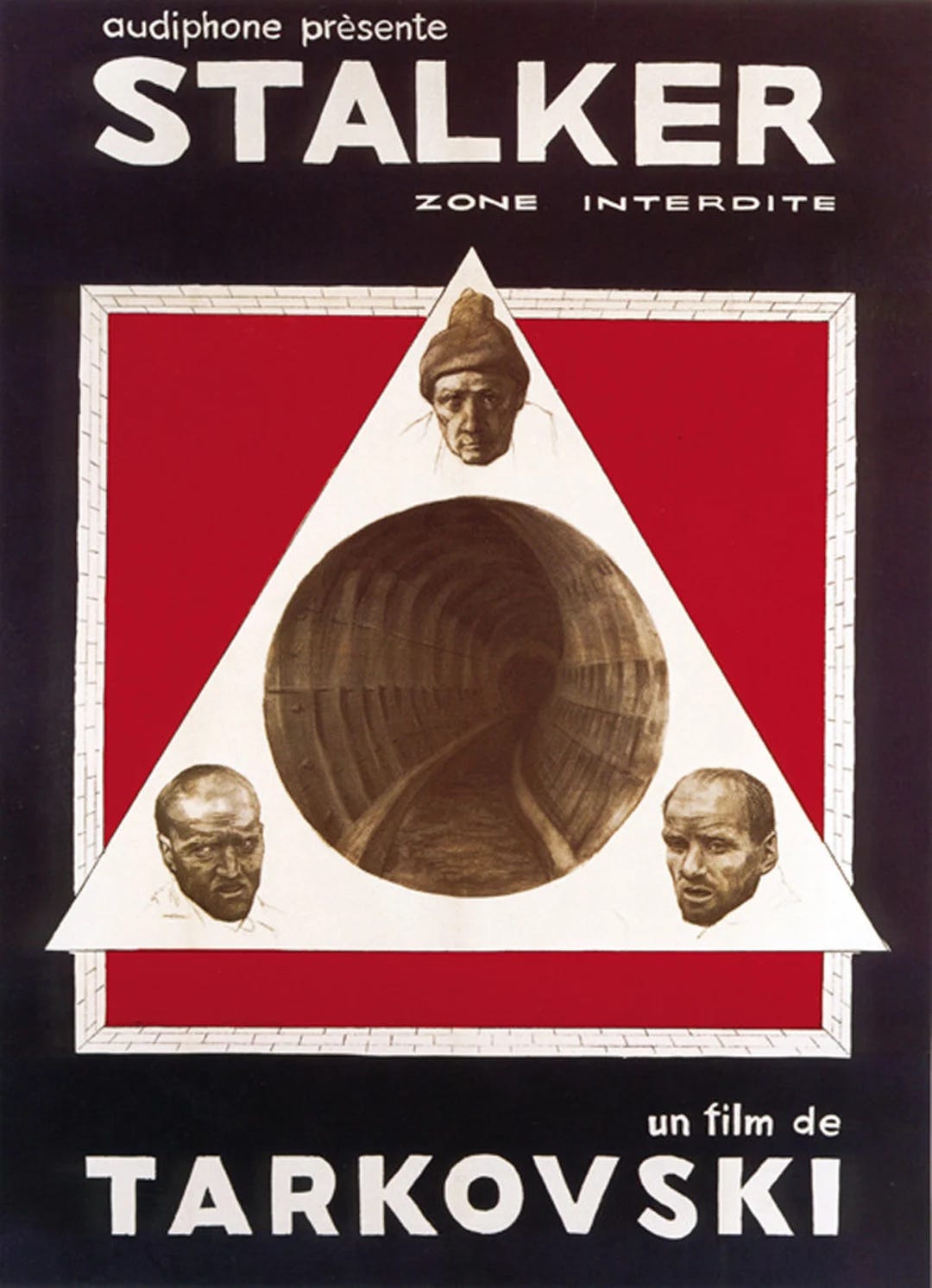May everything come true…
The Cinematic Transformation of Roadside Picnic, & The Exploration of Loneliness in Stalker and Roadside Picnic.
In the realm of science fiction literature, there are certain works that possess a unique allure, captivating readers with their enigmatic narratives and thought-provoking themes. "Roadside Picnic" by Arkady and Boris Strugatsky stands as one such masterpiece. Its haunting exploration of the unknown and the human condition has captivated audiences for decades. Enter the realm of cinema, and the essence of "Roadside Picnic" finds a new expression in Andrei Tarkovsky's enigmatic film, "Stalker."
Released in 1979, "Stalker" is a transcendent adaptation of the Strugatsky brothers' novel, faithfully capturing its philosophical depth and evocative atmosphere. Tarkovsky, renowned for his distinctive style and introspective approach to filmmaking, skillfully translates the enigma of the Zones onto the screen. With breathtaking cinematography and a deliberate pace, "Stalker" immerses viewers in a world where the boundaries of reality and perception blur.
While the film retains the novel's core premise—a dystopian world marked by Zones, containing inexplicable artifacts—the focus subtly shifts. Tarkovsky's "Stalker" delves into the existential questions posed by the Strugatsky brothers, delving deeper into the profound and metaphysical aspects of humanity's relationship with the unknown. The story follows the eponymous Stalker, a guide who navigates the treacherous Zone, leading others to their innermost desires. As the Stalker leads two clients, the Writer and the Professor, through the perilous terrain, the Zone becomes a reflection of their inner struggles and desires.
Tarkovsky's cinematic interpretation of "Roadside Picnic" transcends mere adaptation; it becomes a meditation on the human condition, belief systems, and the power of faith. The film mesmerizes audiences with its long, contemplative shots, drawing them into the characters' psychological journeys and fostering a sense of introspection. Every frame of "Stalker" is imbued with a haunting beauty, capturing the desolation and mystery of the Zones while evoking a sense of awe and wonder.
The film's atmosphere is enriched by its minimalistic sound design, sparse dialogue, and a hauntingly evocative musical score. These elements work in harmony to deepen the viewers' immersion, amplifying the ethereal and introspective qualities of the narrative. Tarkovsky masterfully crafts a world where silence speaks volumes and visual symbolism becomes a language of its own.
"Stalker" is a testament to the power of cinema as an art form. It takes the core essence of "Roadside Picnic" and transcends the limitations of its source material, creating a visual and philosophical experience that lingers in the mind long after the credits roll. Tarkovsky's adaptation stands as a testament to his visionary prowess, showcasing his ability to translate complex themes into a cinematic language that resonates with audiences across generations.
Decades after its release, "Stalker" remains a pinnacle of science fiction cinema and a testament to the enduring power of "Roadside Picnic." Its brooding exploration of humanity's relationship with the unknown, its poetic imagery, and its philosophical depth continue to inspire and provoke contemplation.
"Stalker" stands as a testament to the transformative nature of adaptation, breathing new life into a beloved novel and inviting audiences on an enigmatic cinematic journey. It is a testament to the power of art to transcend boundaries and evoke emotions that defy simple explanation—a true masterpiece born from the fusion of two visionary minds, Arkady and Boris Strugatsky and Andrei Tarkovsky.
The Exploration of Loneliness in "Stalker" and "Roadside Picnic"
Loneliness is a deeply human experience that transcends time, space, and medium. It is an intricate emotion that can be both devastating and enlightening. In the film "Stalker" directed by Andrei Tarkovsky and the novel "Roadside Picnic" written by Arkady and Boris Strugatsky, loneliness plays a significant role in shaping the narrative and the characters' journeys. This essay will delve into the exploration of loneliness in these two works, examining how it influences the characters' perceptions, motivations, and the overall atmosphere of the stories.
Loneliness as a Metaphor for Existential Angst:
Both "Stalker" and "Roadside Picnic" explore loneliness as a metaphor for existential angst. In these works, the characters exist in desolate and post-apocalyptic landscapes, emphasizing their isolation from society and the world. The Zone in "Stalker" and the Zone in "Roadside Picnic" represent places where humanity's connection to the familiar and comprehensible has been severed, leaving individuals adrift and disconnected. The protagonists in both works experience a sense of alienation and yearning for meaning in a world that appears meaningless and indifferent.
Loneliness in "Stalker" and "Roadside Picnic" is not just a physical state but also a psychological condition. The characters in both works grapple with the profound psychological effects of their isolation. In "Stalker," the Stalker himself lives a life of perpetual loneliness, venturing into the Zone in search of something that could give his existence purpose. The emptiness he feels within himself is mirrored in the barren landscapes of the Zone. Similarly, in "Roadside Picnic," Redrick Schuhart struggles with his own solitude and the psychological toll it takes on him. The weight of loneliness becomes a driving force behind the characters' actions, pushing them to seek solace, connection, and a sense of belonging.
Loneliness in these works also explores the profound human desire for connection and the lengths to which individuals will go to find companionship. In "Stalker," the characters willingly risk their lives to reach the Room, a place rumored to grant their innermost desires. This desire arises from their yearning for companionship, acceptance, and understanding. Similarly, in "Roadside Picnic," the characters search the Zone for artifacts left by the extraterrestrial visit, hoping that these objects will bring them wealth, power, or simply a sense of purpose and fulfillment. The pursuit of these artifacts is, at its core, a search for human connection and a remedy for the loneliness they experience.
"Stalker" and "Roadside Picnic" highlight the ambiguity of loneliness and the complex consequences it can have on individuals. The characters in both works are confronted with moments of connection and the potential for meaningful relationships, but these instances are fleeting and uncertain. Loneliness is portrayed as a pervasive condition that is not easily overcome. The Zone, while promising hope and fulfillment, also poses threats and dangers. In "Stalker," the Room may be a source of ultimate happiness, but it can also reveal the darkest aspects of one's psyche. In "Roadside Picnic," the artifacts offer possibilities for change, but they also unleash unpredictable forces. The characters' pursuit of connection and escape from loneliness is fraught with ambiguity and unforeseen outcomes.
Loneliness is a universal theme that resonates deeply with audiences across different mediums. In "Stalker" and "Roadside Picnic," loneliness is explored as a multifaceted experience, serving as a metaphor for existential angst, a psychological condition, a driving force behind characters' actions, and a desire for connection. Through the desolate landscapes of the Zone and the characters' solitary journeys, both works depict the profound impact of loneliness on human existence.
"Stalker" and "Roadside Picnic" invite audiences to contemplate the complexities of loneliness and its consequences. These works emphasize that loneliness is not merely an absence of companionship, but a fundamental aspect of the human condition. Loneliness pushes individuals to seek meaning, connection, and fulfillment, even in the face of uncertainty and danger. It highlights the innate desire for companionship and the lengths people will go to escape their isolation.
Ultimately, the exploration of loneliness in "Stalker" and "Roadside Picnic" prompts us to reflect on our own experiences of isolation and the significance of human connection. These works serve as reminders that loneliness is not to be dismissed or ignored, but acknowledged and understood. Loneliness, as depicted in these narratives, becomes a catalyst for self-reflection, a pathway to self-discovery, and a call for empathy and understanding.
Both "Stalker" and "Roadside Picnic" masterfully delve into the depths of loneliness, illustrating its profound impact on individuals and the human condition. Through their unique storytelling techniques, both the film and the novel provide a rich exploration of the complexities of loneliness, reminding us of the fundamental human need for connection and the quest to find meaning and purpose in a world that often feels alienating and indifferent.
Watch the movie, Stalker here for free
Also this fantastic documentary about the making of Stalker is a much watch









Aww thanks dude, that’s so kind of you to say!
I’m really enjoying and impressed with your exploration of loneliness in popular culture. I’ve never really thought of its connection to Stalker but you make so clear here - really well done!